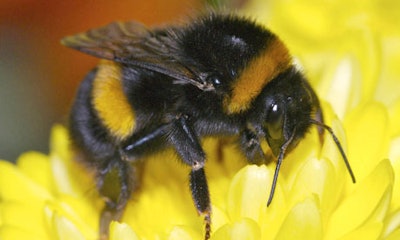
 A new study by Canadian and British researchers linked neonicotinoid pesticides to potentially decreased crop quality.
A new study by Canadian and British researchers linked neonicotinoid pesticides to potentially decreased crop quality.
The analysis, published in the journal Nature, found that bumblebees exposed to typical farm levels of the common insecticide thiamethoxam visited apple trees less often than bumblebees that were not exposed.
Individual bees from the 24 exposed colonies included in the study foraged on more flowers, researchers said, but their colonies showed lower visitation rates and collected less pollen.
Neonicotinoids, scientists said, are the most widely used group of insecticides in the world, but they are also linked to declining populations of honeybees and other pollinators.
University of Guelph environmental scientist Nigel Raine said that previous neonicotinoid studies examined their effects on bees alone, and that the latest study provides important context for decisions regarding pesticide use.
Scientists said that pollinators contribute nearly $500 billion annually to the global agricultural economy.
"If exposure to pesticides alters pollination services to apple crops, it’s likely that other crops, particularly fruits, vegetables and nuts and diverse wild plants that rely on bumblebees could also be affected," Raine warned.






















